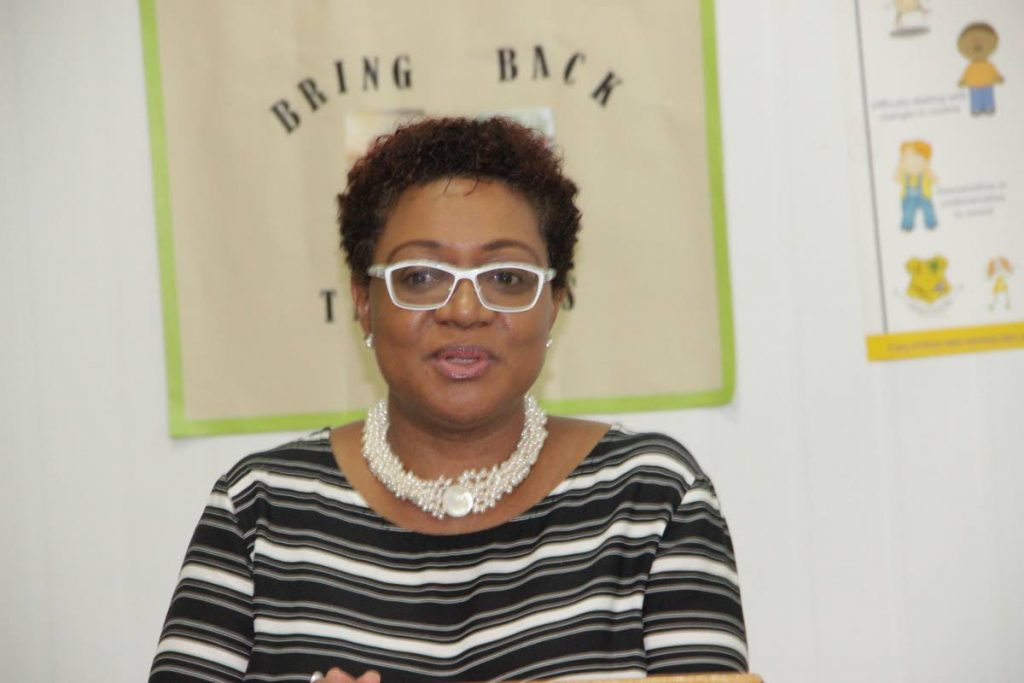Sex-trafficking of Venezuelan women in Tobago

Human trafficking is happening in Tobago with Venezuelan women being brought in to have sex with men across the island.
So revealed Allana Wheeler, Director of the Counter Trafficking unit in the Ministry of National Security, who said the human trafficking was being facilitated by a combination of a lack of security controls for the island and a turbulent economic situation in Venezuela.
“Many of the Latino girls come up on the boat and you won't detect them at all. There is no checking for vehicles, there is no checking for identification, there is no checking for anything. Even at the airports, there is no major kind of security taking place. So, you can have victims of human trafficking…they will come and service clients that are here in Tobago and they will take them back by boat or plane to Trinidad.
“We have cases before the court where that has happened to two Venezuelan girls. They were trafficked to Trinidad and then they were brought across here to have sex with men all across Tobago,” said Wheeler.
“There are things in Tobago that are attracting this type of activity. Once you have illegal guns, once you have a history of drugs, drug traffickers have graduated to trafficking persons. It is more profitable, it is less discoverable. It is most times the traffickers’ words against the victim's and many victims are affected by trauma…the person might not look like a victim, they may not fit the picture,” she said.
Wheeler was speaking at a workshop on Human Trafficking hosted by the Women’s Economic and Technological Empowerment Centre (WeTec) of the Division of Health as part of its events for “16 Days of Activism” in commemoration of International Day for the Elimination of Violence Against Women. The workshop was held at the University of the Southern Caribbean, Rockley Vale.
Wheeler, holder of a Master's degree in National Security Studies, and who has worked in the field of National Security for the last 20 years, also said many foreigners and children fall victim to human trafficking through popular social media sites.
“We actually had a young boy, 17 years old, who ended up in Trinidad and became exploited. He was a homosexual boy who was looking for a job, and he joined an online social group. He wanted to get out of the island that he was in and he was offered a job in that social group which landed him in Trinidad. He ended up working in a legitimate business place but after hours he had to service the owners of the business, who were bisexual,” she told participants at the workshop.
She said the young man was also forced to provide sexual services to many friends of the business owners.
“This 17-year-old boy had to do some unimaginable things and some unimaginable things was done to him. All that came as a result of joining a social online group,” she said.
Describing human trafficking as the trade of humans for the purpose of forced labour, sexual slavery, or commercial sexual exploitation for the trafficker or others, Wheeler noted Trinidad and Tobago’s position on human trafficking.
“Some governments like to say human trafficking does not exist. In Trinidad (and Tobago), there was a time when the government did not admit that there was human trafficking. There was a time that the politicians did not admit. Now I could say that the period was 2007-2008. The government realised that it was happening, there was statistics being collected.
“Additionally, what was noticed was that amongst the drugs and the illegal guns, they saw people starting to come in and people being exchanged along with guns and drugs. So, there was a pattern developing about 10 years ago that was discovered, so the government developed policies and policy lead to legislation.
“Now we have a law in Trinidad and Tobago saying it (human trafficking) is a crime, so we can charge and prosecute persons for the crime of human trafficking. Before that, if you caught prostitutes in a brothel, immediately they would be deported, they would be deemed illegal and they will be charged and brought before the courts.
“Now that we have the legislation, the prostitutes have a chance and a voice to say why they are here,” she said.

Comments
"Sex-trafficking of Venezuelan women in Tobago"